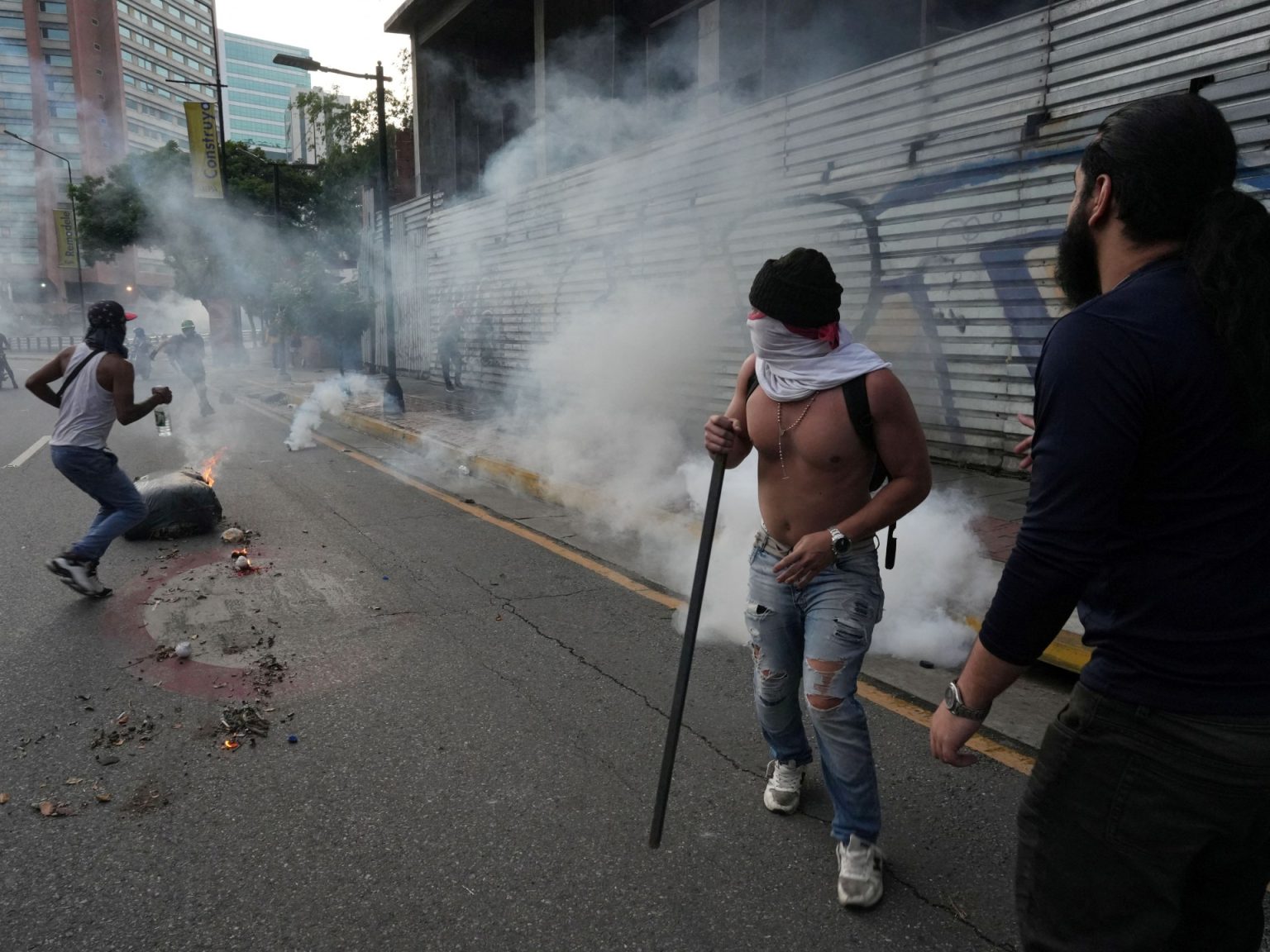After a disputed vote in Venezuela, new protests have erupted as the political turmoil in the country intensifies. The vote in question was for a new legislative body, known as the constituent assembly, which many believe is an attempt by President Nicolas Maduro to consolidate power and undermine the current opposition-led National Assembly. The election was widely criticized by both domestic and international observers for various irregularities, such as lack of transparency and allegations of fraud. This has led to widespread unrest and dissatisfaction among the Venezuelan people, who are increasingly frustrated with the country’s economic crisis and political instability.
The protests have been met with a heavy-handed response from the government, with reports of violence and repression against demonstrators. Security forces have used tear gas, rubber bullets, and water cannons to disperse crowds, leading to injuries and fatalities. The government has also arrested opposition leaders and cracked down on dissent, further exacerbating the tensions in the country. Many fear that Venezuela is on the brink of a full-blown humanitarian crisis, with shortages of food and medicine already widespread and the economic situation deteriorating by the day.
International reactions to the crisis in Venezuela have been mixed, with some countries condemning the government’s actions and calling for a peaceful resolution to the conflict. The United States has imposed sanctions on several Venezuelan officials, including President Maduro himself, in response to the election and subsequent crackdown on dissent. Other countries, such as Russia and China, have voiced support for the Maduro government and criticized what they see as foreign interference in Venezuela’s internal affairs. The political situation in Venezuela has also raised concerns about the country’s ability to meet its international obligations and maintain stability in the region.
The opposition in Venezuela is calling for continued protests and resistance against the Maduro government, despite the risks of violence and retaliation. They are also urging the international community to increase pressure on the Venezuelan government to respect democratic principles and human rights. Many opposition leaders have been detained or barred from participating in politics, leading to a fragmented and weakened resistance movement. The Venezuelan people are facing increasing hardships as the crisis deepens, with hyperinflation and shortages of basic goods making daily life a struggle for many.
The future of Venezuela remains uncertain, with no clear end in sight to the political crisis and economic collapse facing the country. The constituent assembly, which was elected in the disputed vote, is expected to further consolidate power in the hands of President Maduro and his supporters, raising concerns about the erosion of democratic institutions and freedoms in the country. The opposition is determined to continue their fight for democracy and a better future for Venezuela, despite the challenges and obstacles they face. The international community must also remain engaged and supportive of efforts to resolve the crisis peacefully and bring about a return to stability and prosperity in Venezuela.
In conclusion, the situation in Venezuela is escalating as new protests and violence erupt following the disputed vote for a constituent assembly. The government’s crackdown on dissent and opposition leaders has only fueled the unrest and dissatisfaction among the Venezuelan people, who are struggling with a deep economic crisis and political instability. The international community is closely monitoring the developments in Venezuela and calling for a peaceful resolution to the conflict, while the opposition continues to resist the Maduro government’s attempts to tighten its grip on power. The future of Venezuela hangs in the balance as the country teeters on the brink of a full-blown humanitarian crisis.


